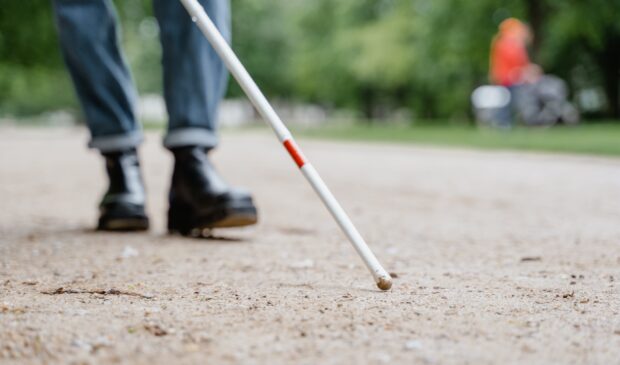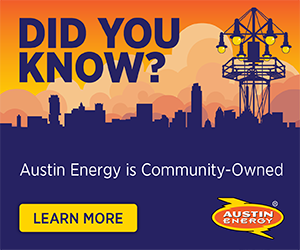Public Safety Commission begins discussion of how people with disabilities relate to policing
Tuesday, February 13, 2024 by
Emma Freer The Public Safety Commission recently considered a pair of reports issued by the Office of Police Oversight regarding policing and people with disabilities. At the commission meeting last week, Austin police leadership also responded to the reports, emphasizing ongoing training on building empathy for people with disabilities and also emphasizing obstacles to implementing some of the resulting recommendations, including those related to data collection.
Nelly Ramírez, who chairs the commission, welcomed the discussion, which came after a delay due to office personnel changes, and said she hopes it expands to include other public safety agencies.
“This is only going to be a bigger and bigger sort of issue,” she said, citing Austin’s rapidly aging population. “This is not a community that is shrinking in any way, shape or form.”
OPO’s reports stem from a July 2020 meeting of the Mayor’s Committee for People with Disabilities, at which multiple committee members raised concerns about negative police interactions. In response, the office collaborated with other city entities and local nonprofits serving people with disabilities to host two community engagement events: a virtual town hall in May 2021 that drew 42 attendees, and a hybrid town hall hosted at the Asian American Resource Center and on Zoom in June 2022 that drew 75 attendees.
After the first town hall, OPO issued a report in September 2021. Its recommendations focused on the need for a subsequent community engagement event that would:
- Build empathy for people with disabilities;
- Accommodate people with disabilities;
- Focus on ideas for improving police interactions with people with disabilities; and
- Address the unique experiences of students with disabilities in the education system.
The second town hall incorporated this feedback, as OPO detailed in an October 2023 report. It also led to a new slate of recommendations, including that the Austin Police Department should:
- Work with the city manager and OPO to regularly update the public on “the implementation status of recommendations from various consultants and reports to improve interactions between people with disabilities and APD officers”;
- Develop inclusive ways to collect meaningful data on such interactions;
- Increase outreach to communities with disabilities; and
- Update its training academy modules related to people with disabilities.
“This (event) feedback indicates that this community feels underserved, and we want to facilitate a way for APD to connect with these community members and to build upon those existing efforts,” Sara Peralta, OPO public information and marketing program manager, told commissioners on Feb. 5.
APD Chief of Staff Jeff Greenwalt agreed about the importance of engaging people with disabilities and pointed to the training academy’s existing efforts to do so.
“This report probably highlights the fact that we’re not bragging on ourselves a little bit in terms of the training that we’re already doing,” he said. “It is obviously perceived in the community that we’re not doing some of these things and that our training does not involve a lot of the recommendations that (OPO has made).”
Greenwalt also addressed the recommendations regarding data collection, specifically that APD expand it to include people with disabilities beyond mental health conditions.
“It sounds like a fantastic idea, but we have to address the elephant in the room,” he said. “If we pull someone over on a traffic stop or respond to a house, are we going to just ask somebody what their disability is so that we can put it into this information database? It creates an obvious kind of uncomfortable situation that might come up.”
The Austin Monitor’s work is made possible by donations from the community. Though our reporting covers donors from time to time, we are careful to keep business and editorial efforts separate while maintaining transparency. A complete list of donors is available here, and our code of ethics is explained here.
You're a community leader
And we’re honored you look to us for serious, in-depth news. You know a strong community needs local and dedicated watchdog reporting. We’re here for you and that won’t change. Now will you take the powerful next step and support our nonprofit news organization?





